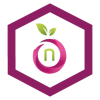What the name "Alphabet" means for Google
"We liked the name Alphabet because it means a collection of letters that represent language, one of humanity’s most important innovations, and is the core of how we index with Google search!“ explained Larry Page. He also liked the play on words, writing in a blog post, "We also like that it means alpha‑bet (Alpha is investment return [sic] above benchmark), which we strive for!"
The alphabet goes from A to Z, making the name a sort of shorthand for all of the company's different pursuits. The story fits perfectly - and even offers the potential for a more interesting interpretation.
A down-to-earth name – or isn't it?
What's so special about Google's decision to rename itself? With Alphabet, Google started by just using an existing word for its new holding company. And not even a trendy or stylish one, but instead something old - practically an antique - from the world of linguistics. In contrast, "Google" is a made-up word derived from "Googol," meaning ten to the power of one hundred. "Google" could almost come from baby talk, and has a comical sound. It's the exact opposite sort of branding.
Google could certainly have chosen another linguistics word, like "exclamation mark" or "semicolon". Laying claim to the entire alphabet, however, fits much better with the company's larger plans.
...But other companies are already called alphabet
That brings us to the practical effects of the choice of name - and that's the part that's really important for every other company. After all, there are lots of companies around the world already called Alphabet. Alphabet.com is still the international domain name of a fleet services company belonging to automaker BMW, and social media accounts like @alphabet on Twitter are still being used.
One assumes that a company like Google has taken legal concerns like these into account. It may run into trademark disputes with the BMW subsidiary, which has the right to use "Alphabet" for various goods and services worldwide. Despite how it looks, the Munich company seems to have taken a relaxed view of the matter for the moment - it may even be enjoying the attention. Had a less well-known company or startup put BMW in this position, it might not have been taken so lightly.
Google simply bypassed the problem with the already-in-use domain name "alphabet.com" by selecting a new extension - the website is now abc.xyz. It's open to debate how pretty or practical the domain name is, but it's nevertheless clever. It symbolizes the entire alphabet, from A to Z, even if it's a bit unusual that the name of the new holding company doesn't appear in the domain name at all. Few companies would have that sort of confidence. That said, few companies could count on comparable media attention.
What a name like this means for "mere mortal" companies
In principle, you could say that all the pretty - and real - words are already registered as domain names or protected as trademarks, or are already in use as company names somewhere. One has to consider whether choosing a name from the dictionary is even worth it, given the risk.
Whether it's the name of a deity like "Zeus," an astronomy term like "Universe," or an animal name like "Lion," everything's already in use somewhere. Startups and medium-sized businesses, in particular, have to be aware of the risks and not rush to a choice of name. With a little luck, it's possible to avoid legal problems when one business wants to use a word that's already in use as a company name or trademark. In any case, using this word as a name makes it difficult to avoid getting lost among all the other similar-sounding businesses.
Everyone wants a great name for their business
The problem is that naturally, most managers want their company's name to lend it a certain meaning, symbolism, or simply grandeur. And that's easiest with a well-known word that symbolizes something special. These days one generally has to get a little more creative when it comes to choosing a name, at least if one isn't a large corporation with the corresponding financial reserves and a huge legal department.
Solutions to the name dilemma
One way to avoid straying too far from real words brand naming is to combine two (or more) real words together. You could include letters, colors, proper nouns, adjectives, or verbs. As that can become confusing, though, it's sometimes a good idea to choose a word that doesn't mean much on its own. "Semicolon," mentioned above, would be one example. But even here, others have often had the same idea. Thus it's best to look at entirely different words - sometimes words that don't seem to describe anything at all - to find words that haven't yet taken on much significance. One good example is "Twitter," which a few years ago only meant a sort of excited chirping and is now one of the most famous trademarks in the world.
The third naming strategy is to slightly modify the word you've already chosen. In the case of "Alphabet," for example, you could use "Alphabey," "Alphabot," or "Alvabet." This would be a step towards a more made-up name and a way to find a unique name that would still not be totally unintelligible. It's possible, however, to add, subtract, or switch around the letters so much that the original word is impossible to recognize. In that case, the name will have to be clarified later, possibly through advertising, once the company is known.
No matter how extraordinary a name eventually is, just about all the invented names have their origins in other words, names, or word combinations.
A name always has to be checked
Even when a particular name is created, there's still work to be done. Even a fantasy name or a modified word is guaranteed to be the name of something somewhere. If not identical, then in a similar form. And as even similar names can be confused - and thus incur legal liabilities - precise legal trademark research is required.
As we've seen, the Google method - using a universal word like "alphabet" as a brand - is rather interesting. Above all due to all the meaning it carries. For most businesses, freelancers, and startups, such a choice would carry a degree of risk that's difficult to calculate, one that could end expensively and require an entirely new name be found.
Incidentally, Google has already shown how to come up with a new name with another business: CALICO is one of the companies under Alphabet that works to find ways to fight the symptoms of aging. The name is a phonemic abbreviation of California Life Company. One of the world's oldest ways to arrive at a name. EPSON (Son of Electronic Printer) and HARIBO (Hans Riegel Bonn) used this method to build their names. With this method, you can even trigger a hot discussion about what is probably behind the acronym. This is what happened with Trivago, a name about whose meaning the web puzzled. Does it come from "trip", "vacation" and "go" or Tri (French for "selection"), va (Spanish for "to go") and go from the French expression "tout de go" for immediately? It's a brand discussion that multiplies itself independently and thus raises awareness. Clever!

















